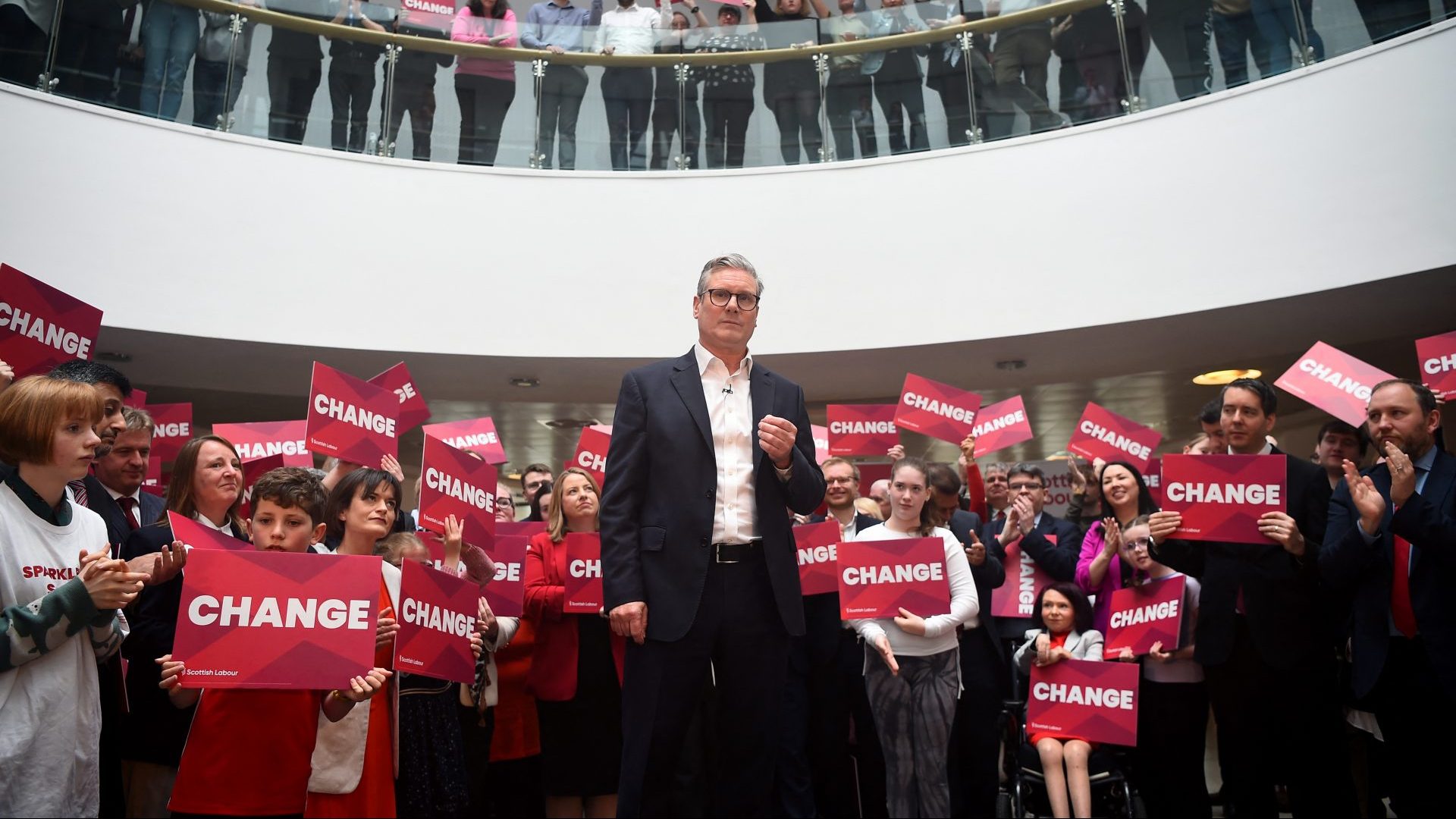As a member of Keir Starmer’s 2020 leadership campaign, I often get asked to “explain Starmerism” to foreign businesspeople and diplomats. What they’re interested in is not the policies but the instincts: how will his front bench respond to failure, what motivates them, what is their belief system?
The first point I always make is: Starmer is not Tony Blair, and this is not a Blairite moment. In 1997, when Blair won his landslide, Britain’s GDP was three times that of India and nearly twice that of China. Today, India’s GDP is larger than ours, while China’s economy is three times bigger than Britain and India’s put together.
The world’s economy has changed, and so has our place in it. Our growth is stagnating; our debt is touching close to 100% of GDP.
The global centres of economic dynamism stretch from the Gulf to Shanghai – and in the places where Britain’s skyline bristles with tower cranes, it is often money from that same arc of dynamism that is paying for them.
It is the failure and exhaustion of the neoliberal economic doctrine shared by John Major, Blair and David Cameron that underpins Labour’s turn to “Securonomics” – the state direction of investment, using rules and incentives, to drive the growth that Labour understands is the prerequisite for social justice.
The second point I make is: Labour is the party of the unions. And the British workforce has seen the longest period of falling real wages since the Napoleonic Wars, and has had enough.
From the junior doctors to Deliveroo riders and Amazon workers, people are prepared to strike and picket to turn things around. Starmerism, for all that it’s an invention of a few clever people in Labour HQ, is also a phenomenon of the labour movement.
Its unstated but fairly central premise is that a move from low-value insecure work to good, green, high-value jobs will have greater transformative power than any programme of redistribution through tax and welfare, and a better long-term effect than any one-off pay deal.
The third point is: Starmerism is a solution to a politico-demographic problem. Demographically, as Britain ages, the votes of conservative-minded older people are distributed efficiently across the small towns and suburbs that send the majority of MPs to parliament. Labour’s vote, together with that of the Greens, SNP and Plaid Cymru, is piled up in the big cities. To win, Labour needs to construct an electoral alliance with older, more socially conservative voters.
Jeremy Corbyn’s solution was to try to distract older voters from their social conservatism with big economic promises. It almost worked in 2017. But it failed miserably in 2019, because small-town Britain wanted Brexit, and was deeply unnerved by Corbyn’s failures on antisemitism and national security.
So from the get-go, as set out in Labour Together’s autopsy on the 2019 election, the coalition around Starmer decided to rebuild Labour as an alliance of city and town; of the young and old; of the socially conservative former manual worker and the socially liberal university lecturer.
If you look at it cynically, Starmerism is whatever collection of policies is needed to hold that demographic coalition together.
But I’m not cynical. Because Labour’s “Five Missions” strategy has intellectual coherence and could, with a bit of luck, be the template for how most developed-world democracies facing the same problem could solve them.
Labour understands that nothing else is possible without a return to growth. It can’t borrow and spend its way out of the hole dug during 14 years of austerity and mismanagement. Nor can it simply tax its way to social justice. It has to profoundly alter the investment climate, pulling tens of billions of private investment into energy, infrastructure, housing and innovative small businesses, alongside smaller amounts of public money.
So as Starmer’s teams peel the campaign stickers off their crumpled suits, and stagger bleary-eyed through the swing doors of minor ministries next Friday morning, they know it’s the unspectacular stuff that matters: planning reform, skills strategy, the project management skills of civil servants.
Get it wrong and, no matter how big the majority now, the votes of small-town social conservatives will swing back to their natural destination – a Tory Party now under the mind-control of the far right.
Get it right and something better than Blairism is in prospect. Because the demographics that produced Brexit, and which are driving Reform’s vote into the 15-18% range, will not last for ever. The average age at which Conservatives form a majority among UK voters is now 71, and it will get older year on year towards the middle of the century. Young voters are massively pro-Labour, and when they are not they vote Green, Plaid or SNP. So if Starmer can deliver a 10-year programme of national renewal, at the end of it Labour, for the first time since the 1940s, will have a natural majority.
Blairism promised a progressive era but failed. Starmerism could be the path to it, and its authors understand the compromises they will have to make to tread that path.
They are the clear-eyed inhabitants of a dangerous and unstable world, and they will react to any reversals by stripping their programme of governance down to its essentials: high growth, clean energy, safe streets, a revived NHS and a first-class education for every child in Britain.
They will react to increased national security threats robustly; they will seek a transactional security pact with the EU, not a return to the Single Market. They will celebrate multiculturalism but limit migration. They will face down Vladimir Putin.
This is a generation of politicians who saw Blairism fail and know they cannot return to austerity. They know the new Third Way is Securonomics, and that they have to make it work.




